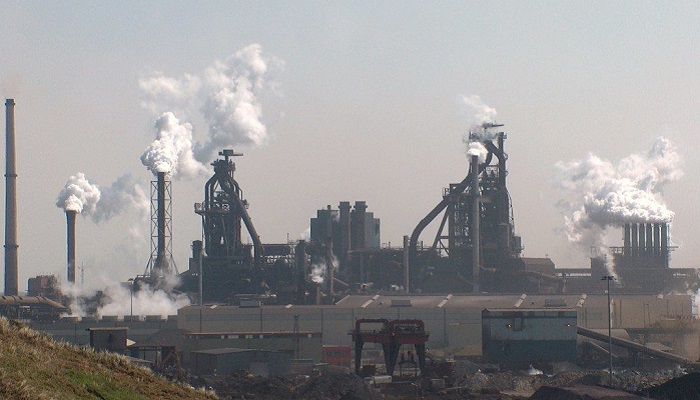Investors may be underestimating the huge structural changes underway in many economies where firms that have made big investments in intellectual capital have left old-style companies reliant on tangible assets for dust.
A leading fund manager has warned that companies which represent up to 40% of the current global equity market may have seen close to zero earnings growth since the financial crisis, with the real position masked by, among other things, quantitative easing, share buybacks and cost cutting.
The analysis was put forward by DWS at the launch of an intellectual capital fund for retail and institutional investors, based on its CROCI (Cash Return on Capital Invested) proprietary company research.
Valuation model changing
The asset manager believes the basis for valuing many of the world’s largest companies may have undergone a radical shift, leading markets to misprice firms with tangible assets above those making heavy investments in intellectual capital and brand – both of which can have a very big impact on a company’s long term prospects.
Francesco Curto, co-head of research and head of the CROCI Investment Strategy and Valuation Group at DWS said: “When you look at all this data from the bottom up, you see a phenomenon that has not occurred in the past.
“Companies cannot grow top line profit. The average top line sales are two percent. One third of companies have negative top line growth. Their focus is on cost-cutting.
Earnings flatlining
“Once you take out the distortions of interest rates and share buybacks, if you are looking at the operating earnings in real terms, adjusting for inflation globally, these have flatlined, At an aggregate level there has been no real earnings growth,” he said.
“When you think about the amount of QE, one of the main drivers since 2007, has been the increasing risk appetite.
“You were putting a multiple on the earnings of 10 and now you are putting a multiple on the earnings of 20. It gives us an idea about how sensitive we are to external shocks or monetary policy changes,” he said.

Curto said his research points to around 40 percent of the market having either seen a decline in earnings growth or at a real risk of seeing a decline going forward.
“Most of these companies have had no or negative earnings growth and we think the main reason is that companies have not been investing in intellectual capital.
“That is where the strategy will focus.
“Those companies with intangible assets have almost doubled their earnings. The market cap has followed. The market cap for those firms has doubled and is unchanged for those without intangible assets.
“If you are a long-term investor, if you buy the equities with a medium to long term view, you cannot ignore this structural change in the economy and in the market.
Physical capital fading
We are seeing an idea generating economic value and economic profit without going through physical capital. It is not that they don’t invest in physical capital – Amazon is one of the top ten spenders in physical capex, but if anything, this is the second stage of this industrial revolution.
The intangible capital is now moving to physical, but this may make the problem even worse for those lagging companies,” he sid

DWS also says the research allows a much clearer assessment of sectors. For example, IT and healthcare have delivered strong earnings growth but these sectors tend to be asset-light, whereas the asset-rich sectors that require large fixed capital investments to generate revenues and investments are also lagging.
Indexes out of date
The fund manager also has concerns about the relevance of the classifications used by the main index providers going forward. It notes “the recent creation of a communications sector combined capital-intensive telecoms operators with capital-light companies makes little sense.”
However, while big tech firms feature strongly, the approach does not just apply to this sector.
“The top investor in R&D is Volkswagen. They will be spending more than US$10bn in R&D. You would not normally classify Volkswagen in this way.”
Old economy discount
An accompanying CROCI research paper said it would be reasonable to expect old economy companies to trade at a discount to the broader market given their structural challenges but that is not the case.
Companies without intellectual capital (IC) generate a cash return 4.5% below the cost of capital. This group trades at an economic price-to-book of 1.24 times, while for the IC group of firms the price-to-book is 2.7 times reflecting its much higher capital cash return of 11.9%.
The new fund starts with the broad universe of CROCI stocks, identify those with intellectual capital, but then filters out those with low potential and high financial risks to arrive at a fund with 100 stocks.
CROCI was set up before the creation of the euro to help adjust valuations across different accounting bases in Europe. CROCI has around 900 companies representing 80 per cent of the investing universe across every region and sector though with a significant majority of developed market coverage as a result.
The firm has made a detailed assessment of how intellectual capital should be treated regarding it as a genuine asset.
Estimated Economic Life of Intangible Assets
Pharmaceuticals (R&D) 10 to 15 years
Chemicals (R&D) 4 to 7 years
Automotive (R&D) 5 to 7 years
Engineering (R&D) 4 to 7 years
Technology (R&D) 2 to 4 years
Consumer Goods (Brand) 4 to 15 years











